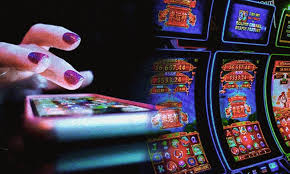The Emergence of NFTs in Gaming
Non-fungible tokens (NFTs) have rapidly become one of the most innovative components of the gaming industry’s evolution. Unlike traditional in-game assets, which are often locked within the game’s ecosystem and controlled by the developer, NFTs are unique, digital items stored on the blockchain, granting players true ownership. These tokens can represent anything from virtual land and rare characters to in-game skins, weapons, and even entire games. By integrating NFTs into gaming, players can now buy, sell, and trade assets outside the confines of the game’s internal economy. This shift is helping gamers turn their time, effort, and creativity into tangible, real-world value. Whether it’s through collecting rare items, reselling NFTs, or leveraging in-game assets for income, NFTs are fundamentally changing the way gamers earn money online.
True Ownership and Tradeable Assets
The core appeal of NFTs in gaming lies in the concept of true ownership. In traditional video games, items such as skins, weapons, or characters may have value within the game, but they cannot be traded or sold for real-world money once the player owns them. NFTs, however, are fully owned by the player, and their value can be determined by market demand, rarity, and utility. For example, in games like Axie Infinity and Illuvium, players can collect unique creatures (or “Illuvials”) as NFTs, which can be bought, sold, or traded on third-party NFT marketplaces like OpenSea. This allows gamers to monetize rare items or assets, providing them with the opportunity to earn substantial income. Players can also leverage these assets in other games or platforms, making NFTs a flexible and transferable form of value that opens up new income-generating possibilities.
Play-to-Earn and NFT Marketplaces
NFTs have been a key driver behind the rise of play-to-earn (P2E) gaming, where players can earn cryptocurrency, NFTs, or other digital assets by actively participating in gameplay. By linking in-game actions to real-world rewards, P2E games have attracted millions of players globally. The Sandbox and Decentraland are prime examples of virtual worlds that allow players to buy and sell virtual land as NFTs. In these environments, players can create digital experiences, from art galleries to virtual stores, which can be monetized. The proliferation of NFT marketplaces such as OpenSea and Rarible has made it easier than ever for players to sell their in-game assets and collectibles to the highest bidder. For gamers looking to profit from their time spent in these worlds, these platforms provide a marketplace where rare and valuable NFTs can be traded for significant sums, offering a direct pathway from play to real-world earnings.
NFTs as Investments and Passive Income Sources
Beyond earning through gameplay, NFTs are also becoming a form of investment, allowing gamers to generate passive income. As the demand for specific in-game assets grows, some gamers are turning their focus to NFT investing, purchasing virtual items or land that are expected to appreciate in value. For example, virtual real estate in Decentraland or The Sandbox has been sold for hundreds of thousands of dollars, with some investors seeing returns as the metaverse continues to expand. Moreover, NFTs tied to in-game assets such as rare skins, collectibles, or characters can increase in value over time, offering the potential for gamers to sell them at a profit. In some games, players can also earn passive income by renting out their NFTs—such as renting out land or rare characters for other players to use—thereby generating ongoing revenue from their assets without actively engaging in the game.
Challenges and the Future of NFTs in Gaming
While NFTs have undoubtedly revolutionized how gamers make money online, the rise of this technology in gaming is not without its challenges. The volatile nature of cryptocurrency markets means that the value of NFTs can fluctuate dramatically, making it difficult for players to rely solely on NFTs for consistent income. Additionally, the environmental concerns associated with blockchain technology, particularly energy-intensive networks like Ethereum, have raised questions about the sustainability of NFT-based gaming. Despite these challenges, the future of NFTs in gaming looks promising. Developers are working on more energy-efficient solutions, such as proof-of-stake blockchains, and increasingly sophisticated game economies are being built to ensure the longevity and stability of in-game NFTs. As these technologies evolve and become more accessible, NFTs are likely to continue to play a central role in how gamers monetize their digital experiences.
In conclusion, NFTs are fundamentally transforming the way gamers make money online by providing new avenues for ownership, trade, and passive income. Through blockchain technology, gamers now have the opportunity to earn real-world value from their digital creations and in-game activities. The rise of play-to-earn models, NFT marketplaces, and virtual economies has made it possible for players to generate significant income by buying, selling, and trading NFTs within the gaming ecosystem. While challenges remain, particularly around market volatility and environmental concerns, the ongoing innovation in the space suggests that NFTs will continue to play a key role in shaping the future of gaming and digital economies. For gamers seeking to turn their passion into profit, NFTs are quickly becoming an indispensable tool in this new era of online gaming.
Play and win real money at the best online casino – Join now!



